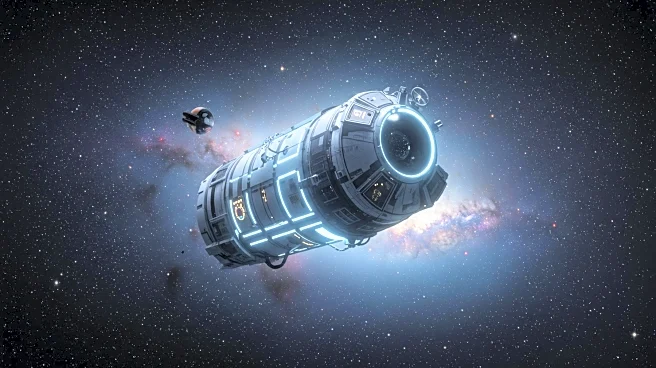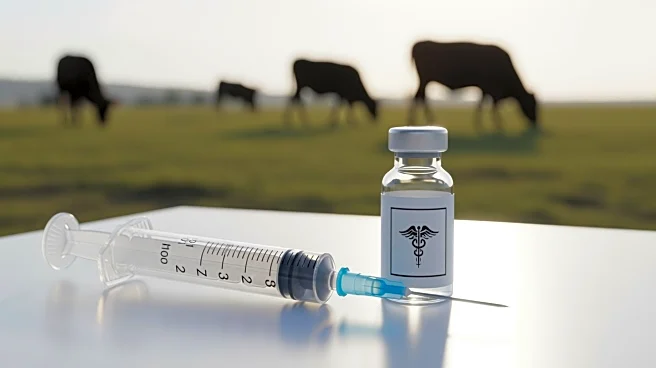What's Happening?
Russia is preparing to launch the Bion-M No. 2 mission, which will send mice, fruit flies, and lunar simulants into space to study the effects of radiation and microgravity. Scheduled for August 20, 2025, the mission will use a Soyuz-2.1b rocket from the Baikonur Cosmodrome. The payload includes 75 mice, over 1,000 fruit flies, and various biological samples. The mission aims to gather data on how space conditions affect living organisms, with implications for future deep-space missions and lunar exploration.
Why It's Important?
The Bion-M No. 2 mission is significant for advancing our understanding of space biology and the effects of space travel on living organisms. The data collected will inform future missions, particularly those involving human spaceflight and lunar colonization. By studying the biological impacts of space conditions, scientists can develop strategies to mitigate risks associated with long-duration space travel, such as radiation exposure. The mission also contributes to the broader field of astrobiology, exploring how life adapts to extreme environments.
What's Next?
Following the mission, researchers will analyze the biological samples to assess the impact of space conditions. The findings will guide future space missions and may lead to innovations in astronaut health and safety protocols. The mission's success could pave the way for more complex biological experiments in space, enhancing our understanding of life beyond Earth.








